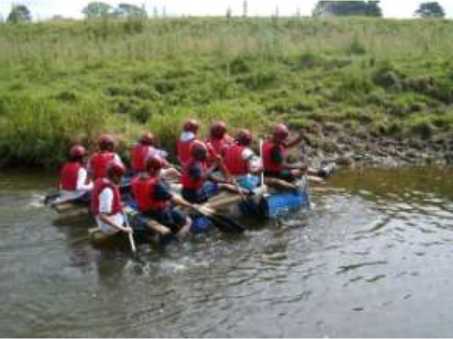Eight six percent of responses after the course suggested that teams had
worked well together the whole time (see Figure 3) with a further 7%
describing effective teamwork as happening sometimes. The most important
success factors observed by the students were listening well, co-operating,
helping / supporting one another, which matched well with those expected.

Figure 3 Team building at Castle Head.
Physical or behavioural expectations and impacts
About 80% of the students were aware that they would be learning new
physical skills such as surfing, canoeing, climbing and horse riding but 16%
could not identify any and a small proportion (3%) thought that they would not
learn any new skills. After the course, 66% identified a new physical skill that
they had learned such as climbing, horse riding, canoeing, surfing or hill
walking, and several mentioned improving skills in football and building
stamina. A few students felt that the hill walking had been an unwelcome
challenge: why did we do the walk? However, others (Figure 4) were actively
engaged in observing geological features, listening to the history of land use
as well as noticing social implications of living in rural areas: I can’t believe
that guy has left his car window open, that kid has just left his bike outside!
16
16
More intriguing information
1. The name is absent2. The name is absent
3. The name is absent
4. GOVERNANÇA E MECANISMOS DE CONTROLE SOCIAL EM REDES ORGANIZACIONAIS
5. The name is absent
6. The name is absent
7. The name is absent
8. Neighborhood Effects, Public Housing and Unemployment in France
9. Regionale Wachstumseffekte der GRW-Förderung? Eine räumlich-ökonometrische Analyse auf Basis deutscher Arbeitsmarktregionen
10. The name is absent